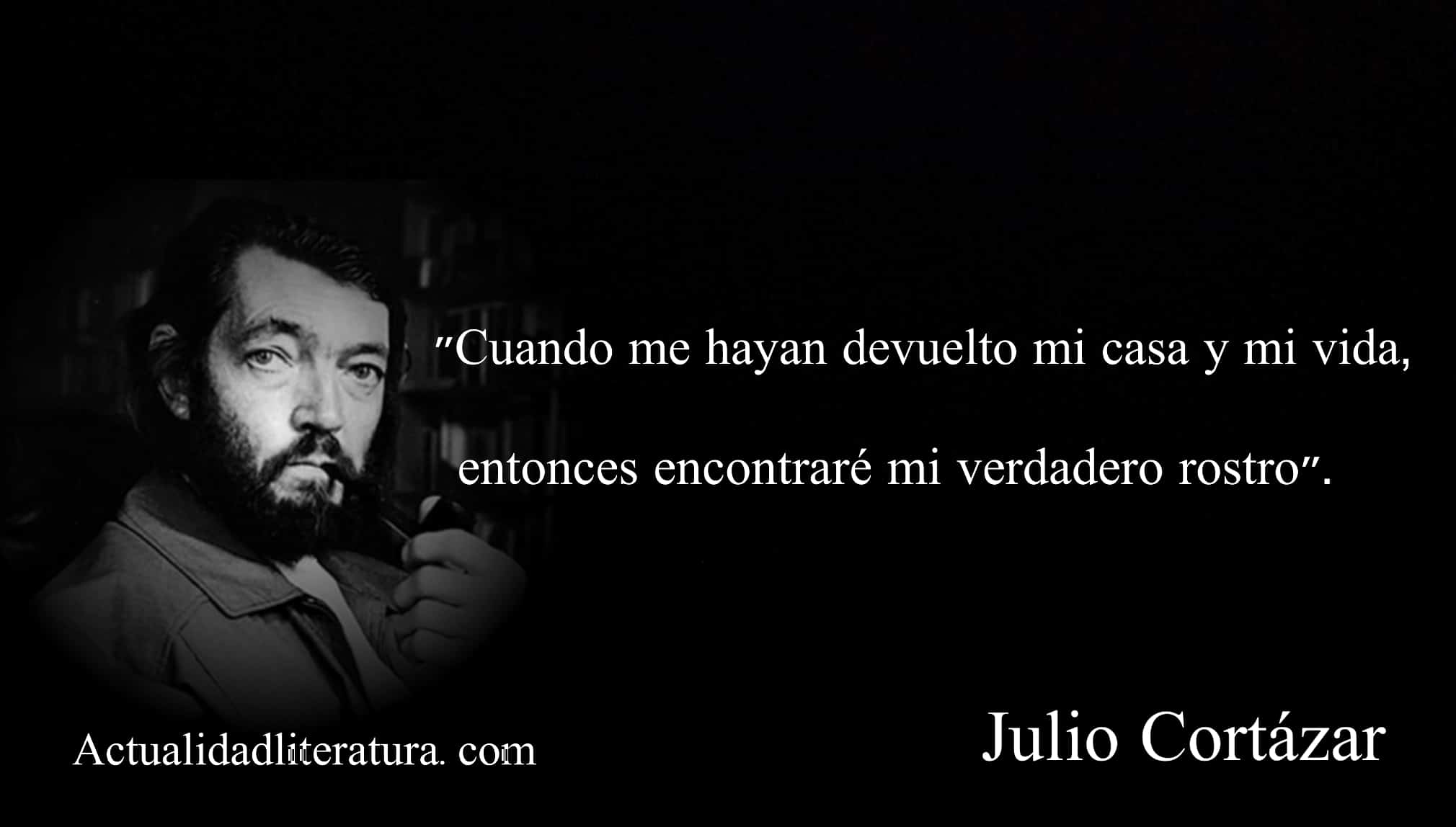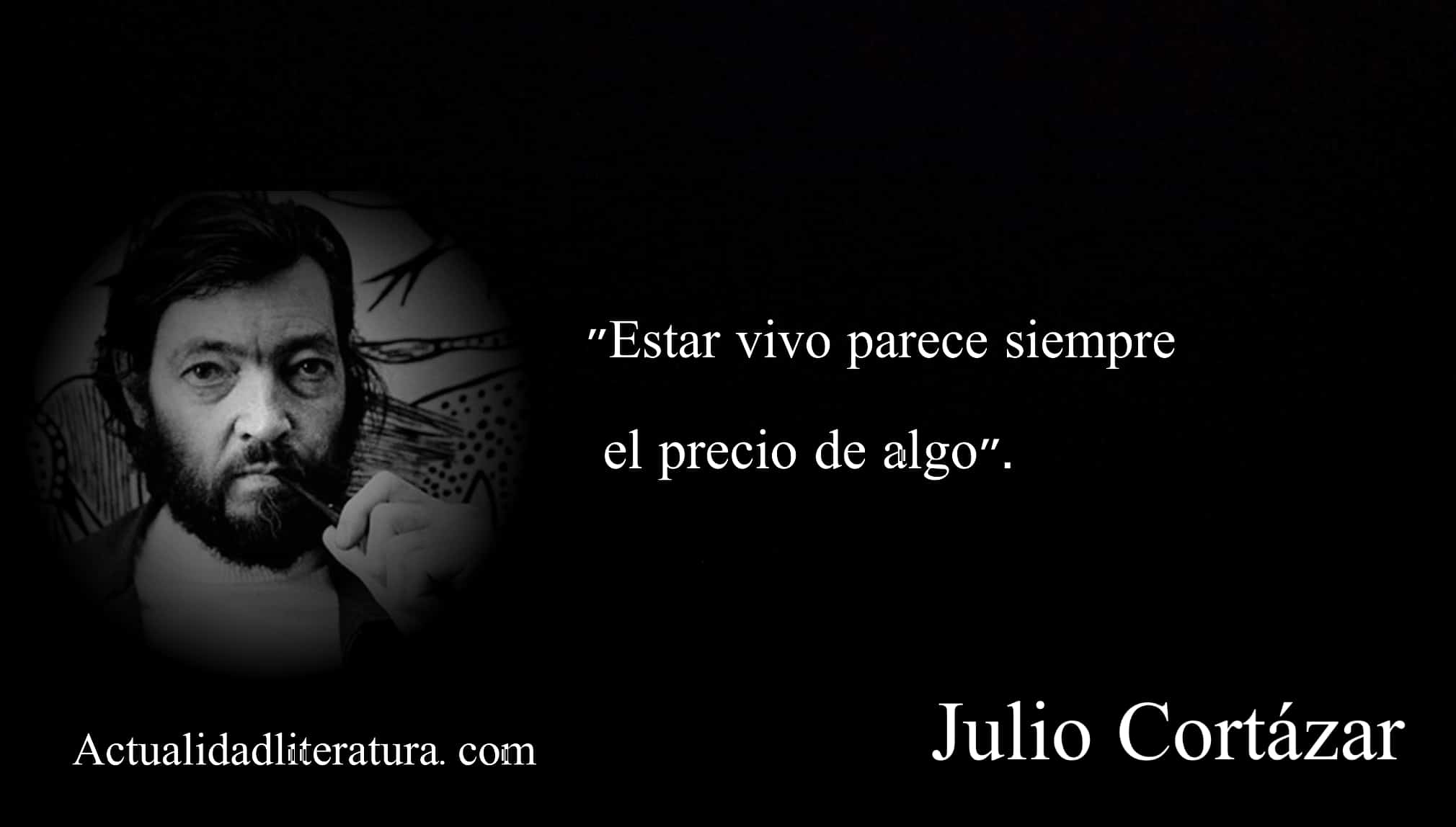
Quote by Julio Cortázar
Julio Cortázar was a renowned Argentine writer who stood out on the world literary scene for the uniqueness of his texts. His originality led him to produce significant poetic works, novels, short stories, short prose and miscellaneous. For the time, his work broke with the paradigms; he traveled with total freedom and dominance between surrealism and magical realism.
In his long career, Cortazar he built a robust collection of versatile and meaningful books. Not for nothing is considered one of the main authors of the literary phenomenon known as the "Latin American boom”. He also did notable work as a translator at Unesco and in some publishing houses. In this last profession, his works on the works of: Edgar Allan Poe, Daniel Defoe, André Gide, Marguerite Yourcenar and Carol Dunlop stand out.
Poetic work by Julio Cortázar
Presence (1938)
The text was published in 1938 under the pseudonym Julio Denis. It is a limited edition presented by Editorial El Bibliófilo. Only 250 copies were printed, which consist of 43 sonnets. In these poems the musical prevailed, in addition to the search for harmony and peace. Cortázar He was not proud of this work, he considered it an impulsive and immature act, so he refused to republish it.
In 1971, in an interview with JG Santana, the writer commented on the following about the work: “A sin of youth that no one knows and that I show no one. It is well hidden… ”. Although little is known about this book, some of those sonnets are rescued, one of them is:
"Music"
I
Amanecer
They double night rites, waiting
of the orange sword - shed
endless, oleander on winged meat—
and lilies play in the spring.
They deny - deny yourself - wax swans
the caress rendered by the sword;
they go - go you - north to nowhere
Swimming foam until the sun dies
Wall of unique planes is created.
The disk, the disk! Look at him, Jacinto,
think how for you he lowered his height!
Music of the clouds, melopea
put to form for its flight the plinth
It must be an evening burial.
Pameos and meopas (1971)
It is the first collection of poems published under his name. Is a compilation with several of his poems. Cortázar was reluctant to present his poetry, he was extremely shy and circumspect about his compositions in this genre. In this regard, he commented: "I am an old poet [...] although I have kept almost everything written in that line unpublished for more than thirty-five years."
In 2017, Editorial Nórdica paid tribute to the author by publishing this work, which featured the poetry he wrote from 1944 to 1958. The book is divided into six parts —Each one with its title—, which contain between two and four poems, with no relationship between them or date of elaboration. Despite the notable difference between each of the texts - the lack of coincidence in the receiver, the subject, its amplitude or the rhythm - they maintain their characteristic style. This edition featured illustrations by Pablo Auladell. One of the poems is:
"Restitution"
If I know nothing about your mouth but the voice
and of your breasts only the green or the orange of the blouses,
how to boast of having you
more than the grace of a shadow that passes over the water.
In my memory I carry gestures, the pout
how happy it made me, and that way
to stay in yourself, with the curved
repose of an ivory image.
This is not a big deal that I have left.
Also opinions, anger, theories,
names of brothers and sisters,
the postal and telephone address,
five photographs, a hair perfume,
a pressure of tiny hands where no one would say
that the world is hiding from me.
I carry everything effortlessly, losing it little by little.
I will not invent the useless lie of perpetuity,
better to cross bridges with your hands
full of you,
tearing my memory to pieces,
giving it to the doves, to the faithful
sparrows, let them eat you
between songs and noise and flapping.
Except twilight (1984)
It is a compilation of poems by the writer published shortly after his death. The text is a reflection of your interests, memories and feelings. The compositions are versatile, in addition to his experiences, they show his love for his two cities: Buenos Aires and Paris. In the work he also paid tribute to some poets who marked his existence.
In 2009, Editorial Alfaguara presented a new edition of this collection of poems, which included the manuscripts of the corrections made by the author. Therefore, the errors contained in both the original book and other editions were amended. The following sonnet is part of this publication:
"Double invention"
When the rose that moves us
encrypt the terms of the trip,
when in landscape time
the word snow is erased,
there will be a love that finally takes us
to the passenger boat,
and in this hand without a message
it will awaken your mild sign.
I think I am because I invent you,
alchemy of eagle in the wind
from the sand and the gloom,
and you in that vigil encourage
the shadow with which you illuminate me
and he murmur that you invent me.
Other poems by the author
"Night"
I have black hands tonight, my heart sweaty
like after fighting to oblivion with the smoke centipedes.
Everything has been left there, the bottles, the boat,
I don't know if they loved me, and if they expected to see me.
In the newspaper lying on the bed it says diplomatic meetings,
an exploratory sangria beat him happily in four sets.
A towering forest surrounds this house in the center of the city,
I know, I feel that a blind man is dying in the vicinity.
My wife goes up and down a little ladder
like a captain who mistrusts the stars….
"The good boy"
I won't know how to untie my shoes and let the city bite my feet
I will not get drunk under bridges, I will not commit flaws in style.
I accept this fate of ironed shirts,
I get to the cinemas on time, I give up my seat to the ladies.
The long disorder of the senses is bad for me."The friends"
In tobacco, in coffee, in wine,
at the edge of the night they rise
like those voices that sing in the distance
without knowing what, along the way.Lightly brothers of destiny,
Dioscuri, pale shadows, they scare me
the flies of habits, they hold me
to stay afloat amidst the whirlwind.The dead speak more but in the ear,
and the living are warm hand and roof,
sum of what was gained and what was lost.So one day in the shadow boat,
from so much absence my chest will shelter
this ancient tenderness that names them."Happy New Year"
Look, I don't ask for much
only your hand, have it
like a little toad that sleeps happy like this.
I need that door that you gave me
to enter your world, that little piece
of green sugar, of cheerful round.
Won't you lend me your hand tonight
New year's eve of hoarse owls?
You can not, for technical reasons. Then
I stretch it in the air, weaving each finger,
the silky peach of the palm
and the back, that country of blue trees.
So I take it and hold it, like
if it depended on it
a lot of the world,
the succession of the four seasons,
the crowing of the roosters, the love of men.
Biographical summary of the author
Julio Florencio Cortázar was born on August 26, 1914 in the southern region of Ixelles in Brussels, Belgium. His parents were María Herminia Descotte and Julio José Cortázar, both of Argentine origin. At that time, his father served as commercial attaché of the Argentine embassy.

Quote by Julio Cortázar
Return to Argentina
When the First World War was about to end, the family managed to leave Belgium; They arrived first in Switzerland and then in Barcelona. When Cortázar was four years old, he arrived in Argentina. He lived his childhood in Banfield —south of Buenos Aires—, along with his mother, his sister Ofelia and an aunt.
A difficult childhood
For Cortázar, his childhood was infused with sadness. He suffered the abandonment of his father when he was 6 years old and did not hear from him again. In addition, he spent a lot of time in bed, because he constantly suffered from various diseases. However, this situation brought him closer to reading. At just nine years old, he had already read Victor Hugo, Jules Verne and Edgar Allan Poe, which caused recurring nightmares.
He became a peculiar young man. In addition to his regular readings, he spent hours studying the Little Larousse dictionary. This situation came to worry her mother so much that she visited the principal of her school and a doctor to ask them if it was normal behavior. Both specialists advised him to avoid the child reading for a period of half a year, at least, and also to sunbathe.
The little writer
When he was about to turn 10 years old, Cortázar wrote a short novel, in addition to some stories and sonnets. These works were impeccable, which caused his relatives to distrust that they were produced by him. The author confessed on several occasions that this situation caused him immense distress.
Studies
He attended elementary school at School No. 10 in Banfield, and then entered the Mariano Acosta Normal School of Teachers. In 1932, he graduated as a normal teacher and three years later as a Professor of Letters. Later, he enrolled at the University of Buenos Aires to study Philosophy. He dropped out after passing the first year, as he decided to practice his profession in order to help his mother.
Work experience
He began teaching in various cities in the country, including Bolívar and Chivilcoy. In the latter he lived for almost six years (1939-1944) and taught literature enrollment at the Normal School. In 1944, he moved to Mendoza and taught French literature courses at the National University of Cuyo. At that time he published his first story, "Witch", in the magazine Literary Mail.
Two years later —after the triumph of Peronism—, He resigned from his teaching job and returned to Buenos Aires, where he started working in the Argentine Book Chamber. Shortly after, he published the story "House taken" in the magazine The Annals of Buenos Aires —Administered by Jorge Luis Borges—. Later he presented more works in other recognized magazines, such as: Realidad, Public chat and Journal of Classical Studies from the University of Cuyo.
Qualification as a translator and the beginning of your publications
In 1948, Cortázar qualified as a translator from English and French. This course took three years to complete, but it took him only nine months. A year later, he presented the first poem signed with his name: “Los reyes”; Furthermore, he published his first novel: Fun. In 1951 he released Bestiario, a work that compiles eight stories and gave him recognition in Argentina. Soon after, he moved to Paris due to disagreements with the government of President Perón.
In 1953 he accepted the proposal of the University of Puerto Rico to translate the complete repertoire into prose of Edgar Allan Poe.. This work was considered by critics as the best transcription of the work of the American writer.
Death
After more than 30 years living on French soil, President François Mitterrand granted him nationality. In 1983, the writer returned for the last time - after the return to democracy - to Argentina. Shortly after, Cortázar returned to Paris, where He passed away on February 12, 1984 due to leukemia.

